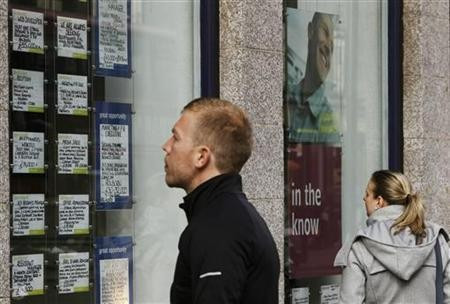UK Permanent Job Vacancies Rising Despite Worse Outlook for Economy

The number of permanent job vacancies in Britain grew at their fastest pace for almost a year and a half after the economy lifted itself out of recession in the third quarter.
Despite the economic downturn employment has been robust in the UK, though some economists fear the job market's resilience will not last as the country's GDP forecasts are slashed and a number of global macroeconomic headwinds threaten future stability.
An index measuring recruitment to permanent job roles, compiled by the Recruitment and Employment Confederation (REC) and consultancy giant KPMG, hit 55.0 in October - its best performance since May 2011.
"The sharpest rise in job vacancies in over a year shows employers are confident about their own businesses and, as they deal with increasing demand, are driving the momentum for more people finding work," said Kevin Green, REC chief executive.
Latest official employment figures from the Office for National Statistics (ONS) showed that unemployment fell to 7.9 percent in the three months to the end of August, as employment hit a record high with 29.59m people in work.
The statistics came as the country bounced back from its longest double-dip recession since the Second World War with 1 percent growth in the third quarter of the year.
However, Several forecasters have slashed their growth predictions for the UK economy.
European Commission economists predict weak near-term performance from Britain, cutting its 2012 forecast to a 0.3 percent contraction from 0.5 percent growth, and for 2013 dropping its estimate to 0.9 percent expansion from 1.7 percent.
They blame the eurozone crisis and dampened spending.
"The outlook for the remainder of 2012 remains bleak," the commission said in its report.
"It is increasingly unlikely that net trade will give a positive contribution to growth this year and it will remain subdued next year."
Bank of England economists have also cut their UK growth forecasts, as has the International Monetary Fund (IMF).
Policymakers at the Bank of England face yet another difficult decision on whether to extend their £375bn stimulus programme, after Britain lifted out of recession in the third quarter but the wider economic malaise continues.
Private industry data from the start of the fourth quarter has been disappointing, with the service sector in particular - which represents three quarters of the UK's entire economy - slowing down to near zero growth.
Opinion is divided on whether a further £50bn will be added to the Bank's quantitative easing programme, known as the asset purchase facility, at the next meeting of the monetary policy committee (MPC) on 8 November.
Falling inflation has given the Bank room to move on its stimulus programme, after it dropped to a three year low in August at 2.2 percent, just over the government's 2 percent target.
However MPC members have indicated that they may wait until the impact of two significant credit easing schemes, launched early in the summer, are having on the UK economy before they step up quantitative easing once again.
© Copyright IBTimes 2025. All rights reserved.






















